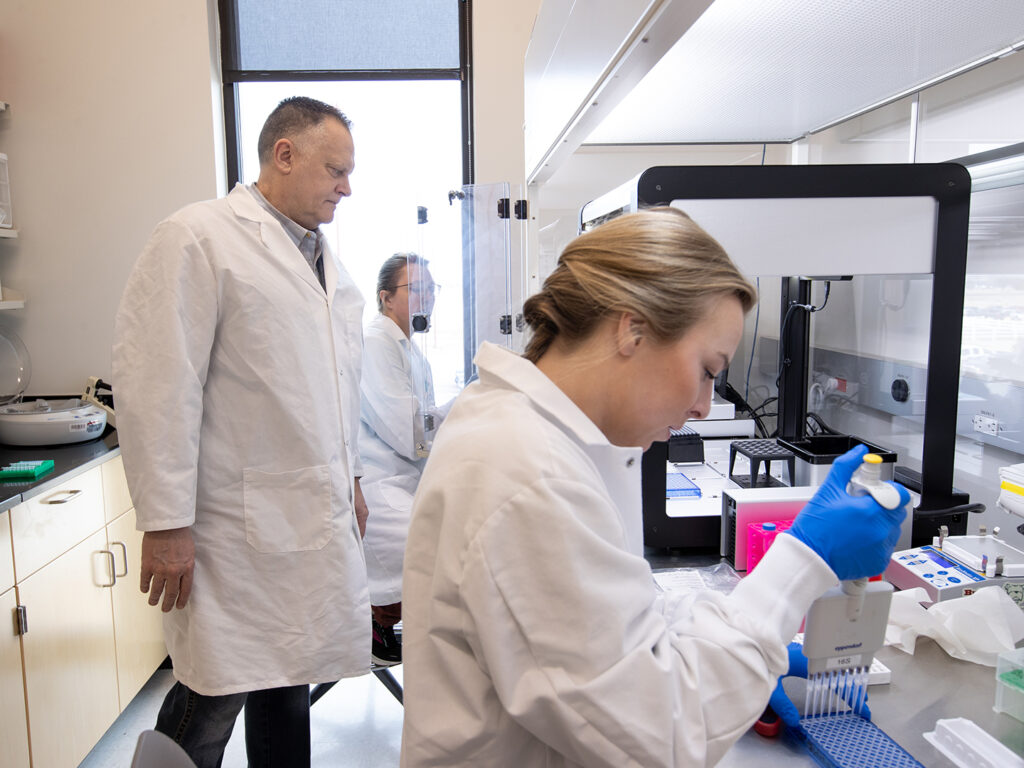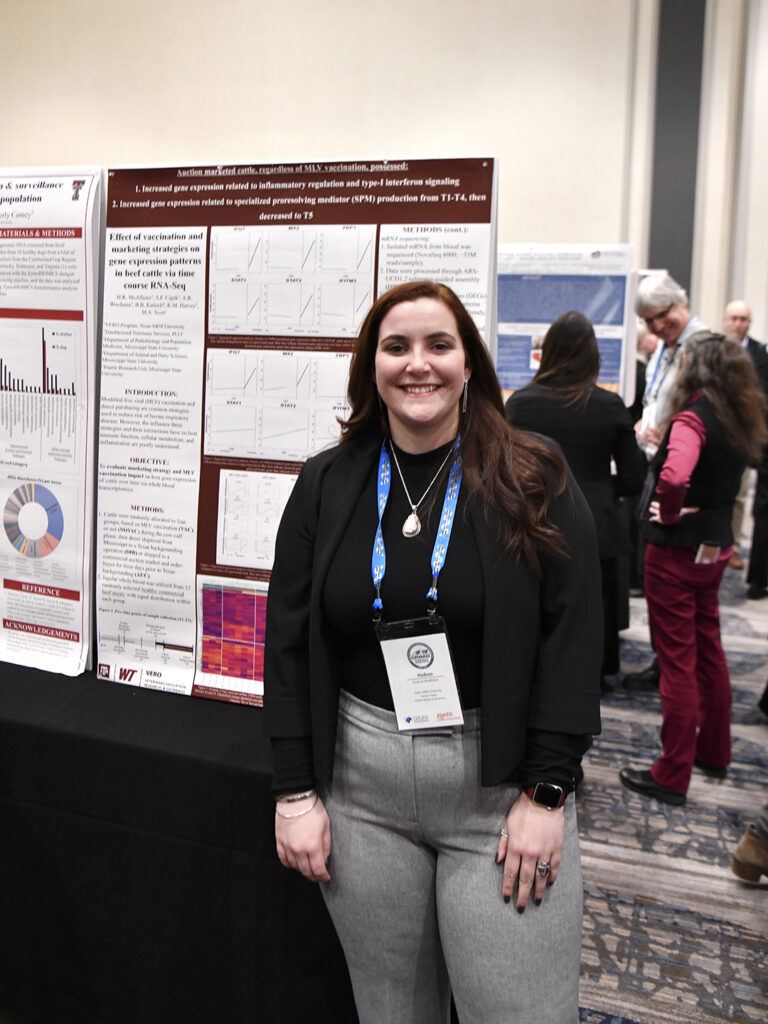Texas A&M’s VERO Program: A Home for Graduate Student Researchers

By Dr. Matthew Scott, Texas A&M Assistant Professor of Microbial Ecology & Infectious Disease
At the Texas A&M College of Veterinary Medicine & Biomedical Sciences’ (VMBS) Veterinary Education, Research, & Outreach (VERO) campus in Canyon, education doesn’t happen only in the classroom.
VERO’s state-of-the-art research laboratories also present abundant learning opportunities for students, from Doctor of Veterinary Medicine (DVM) candidates to individuals pursuing a master’s degree, Ph.D., or postdoctoral experience.
Being located on the West Texas A&M University (WT) campus, VERO offers these opportunities to both Texas A&M and WT students, which provides our labs with a diverse group of students from various degree programs and backgrounds.
Of all the research trainees currently working at VERO, many come from non-animal science or veterinary backgrounds, and our research training provides the skillset to pursue research in any field.
Our research training also includes all major facets of research — study design, field work, benchtop work in the lab, and data analysis — resulting in well-rounded young researchers. Those students also get the opportunity to learn about more advanced aspects of lab work such as bioinformatics, or the methods and tools used to understand large and complex sets of biological data.
For example, a student may help plan a study on a certain cattle health condition, gather samples from WT’s research herd, use lab equipment to analyze samples and extract usable data, and, finally, incorporate bioinformatics to turn the data into meaningful results. In other words, the trainee is involved in all steps of the research journey.
VERO’s partnership with WT also allows us to collaborate on ongoing projects or led by WT faculty, and vice versa, giving students more opportunities for hands-on experience.
One major project that many of our young researchers collaborate on is searching for biomarkers that predict Bovine Respiratory Disease, a critical health and economic concern in the cattle production industry. Another major project is looking at risk factors for liver abscesses, projects which drive ample collaboration with our colleagues at WT.
Working in WT’s feed yards and with the cattle operations surrounding Canyon helps students understand not just the “how” but the “why” of research; they can truly see how their hard work is relevant to real-world problems.

Ph.D. student Hudson McAllister is one of the many amazing students I’ve had the opportunity to work with on several projects at VERO.
Originally from South Carolina, McAllister earned her undergraduate degree in animal science at the University of Tennessee at Martin and came to Texas for a master’s degree in animal science with Dr. John Richeson, a WT associate professor.
After earning her master’s and spending a year working as a veterinary technician in Alabama, Hudson returned to Texas to do her Ph.D. at VERO, where she’s studying vaccine epidemiology, bioinformatics, study design, and statistics.
McAllister’s interesting background has made her uniquely prepared to understand the practicality behind her work and why it matters. Her experience with WT also instilled in her a collaborative, ready-to-learn attitude that I see in a lot of the students we share with our neighboring institution.
Of the four major projects that comprise her Ph.D. work, almost all involve collaboration with WT, industry partners, and other academic institutions. These projects include reviewing the efficacy of viral vaccination in commercial cattle operations; looking at how management influences respiratory disease development in beef cattle; studying the interaction of vaccination and marketing strategy on beef cattle gene expression; and evaluating the influence of injectable versus intranasal vaccinations on bovine immunity.
McAllister represents another unique aspect of the body of students we train at VERO — these students handle multiple, diverse projects. Another great example of this is Maggie Murphy, a WT Ph.D. student working with Dr. Paul Morley to study the microbiome of developing calves and foals.
While McAllister still has a few more years left of her Ph.D., she is interested in pursuing a career in vaccine research or regulation with the United States Department of Agriculture, both of which would be extremely impactful careers for veterinary medicine.
I truly see McAllister becoming a leader in animal health and vaccine management one day. It’s really exciting to get to work with Hudson now and give her formal training, but one day, I’m likely going to be the one asking her questions.
This highlights one of my favorite things about being a faculty member at VERO — I get to help mentor and develop the next generation of scientists who will help us address the challenges we’re facing today in Texas and across the United States.
I can’t wait to watch the trainees of today become the research leaders of tomorrow, and I’m proud of my role, and VERO’s role, in helping make that happen.
###
For more information about the Texas A&M College of Veterinary Medicine & Biomedical Sciences, please visit our website at vetmed.tamu.edu or join us on Facebook, Instagram, and Twitter.
Contact Information: Jennifer Gauntt, Director of VMBS Communications, Texas A&M College of Veterinary Medicine & Biomedical Sciences, jgauntt@cvm.tamu.edu, 979-862-4216


